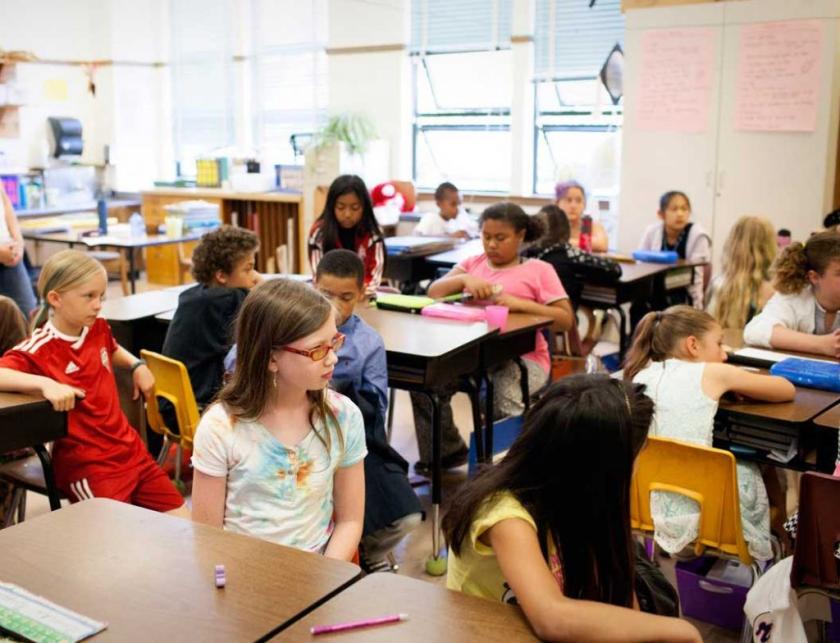For teachers, it's not just what you say, it's how you say it
Denisia Wash, a kindergarten teacher in Berkeley, didn’t want to use a sugary voice when she talked to her 5-year-old students – they weren’t babies and that voice wasn’t actually effective, she said. But she didn’t want to use a sharp-edged voice either, the impatient tone that can come out when she’s tired or under pressure. “I call that teacher voice my ‘stress voice,’” she said.
Last year, she conducted an experiment as part of her evaluation at Berkeley Unified. If she changed her tone of voice, would her students feel more involved in what they were learning?
[...]
“I’ve known teachers who have been yellers and teachers who have been very, very soft-spoken,” said David Kretschmer, an education professor at California State University, Northridge. “Just as with the tone we use with anybody we’re conversing with – or the tone we use with a pet – it can have a powerful impact.”
Part of Kretschmer’s job is to observe student teachers in classrooms, where they are practicing their craft in real time, and he doesn’t hear them yelling or whispering. What he has heard, he said, is “student teachers who have been very, very flat in terms of delivery of information.”
“And guess what?” he said. “Kids are pretty bored.” He offers tips. “I tell them if you put an inflection in there, and vary your tone and volume, that can have a remarkable impact on students,” he said.
[...]
Exactly how a teacher’s tone of voice is being received by students is worth finding out, said Wendy Murawski, executive director of the Center for Teaching and Learning at California State University, Northridge. “There are teachers who are seen as far too critical or negative and they just don’t know it,” she said. Being observed by another teacher or by an administrator is one way to find out. Another is to survey students about what’s working well and what could be better, she said.
Like children in the same family, students in the same classroom may react differently to the way a teacher tells a joke or reads aloud in a funny voice. Murawski noted that a student with autism may not be able to decode a teacher’s tone. “What works with most won’t necessarily work with all,” she said.




